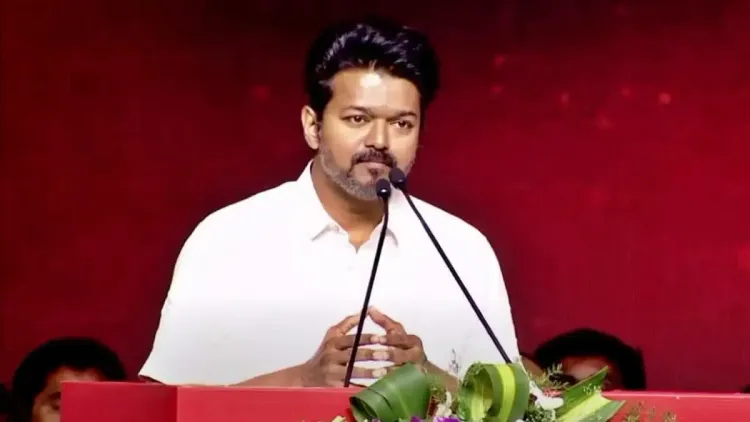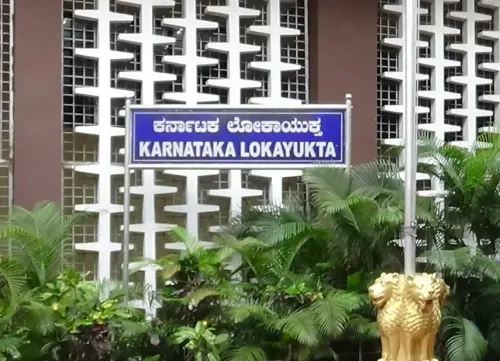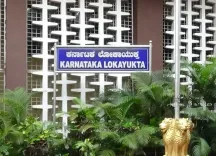Was the bomb threat at TVK chief Vijay’s residence a hoax?

Synopsis
Key Takeaways
- The bomb threat at Vijay's residence was confirmed as a hoax.
- Police are investigating the caller's identity.
- The incident follows a series of hoax threats in Chennai.
- Authorities continue to face challenges in tracking down culprits.
- Public safety remains a paramount concern.
Chennai, Oct 9 (NationPress) Following the heartbreaking Karur stampede that resulted in 41 fatalities during a recent celebration, a bomb threat was reported at the home of Tamilaga Vettri Kazhagam (TVK) leader and actor C. Joseph Vijay on Thursday. After an extensive search operation, authorities have confirmed the threat to be a hoax and are now investigating the caller's identity.
Senior police officials revealed that an anonymous tip-off indicated the presence of explosives at Vijay's residence.
In a prompt response, bomb disposal units and local law enforcement conducted thorough checks and verified that the threat was unfounded.
“We are taking this matter seriously and are working to identify the source of the call,” stated an officer.
This incident occurs amidst a troubling trend of hoax bomb threats affecting Chennai in recent months.
Numerous emails warning of explosives at public venues, government facilities, and the homes of notable figures in politics and cinema have become a frequent disturbance.
Last week alone saw at least nine such threats reported over three consecutive days, keeping law enforcement on high alert.
Officials noted that although over 60 First Information Reports (FIRs) have been filed since the beginning of 2023, no arrests have been made to date.
In many cases, multiple threats received on the same day have been consolidated into one investigation.
Cybercrime division sources indicated that the perpetrators’ use of virtual private networks (VPNs) and privacy-focused browsers has complicated efforts to trace them.
“Almost all senders utilize layered VPNs, and by the time we manage to track them, we encounter falsified IP addresses. Limited collaboration from international law enforcement, particularly in the United States where many VPN servers are situated, exacerbates the situation,” explained a senior officer.
Although these incidents are categorized as cybercrimes, they are routinely handed over to the state police’s anti-terrorism squad due to their nature.
A consistent pattern has emerged where emails purporting to be from celebrities or politicians are directed to the DGP’s office, warning of bombs at significant sites.
High-profile targets have included the homes of the Chief Minister, the Leader of the Opposition, Raj Bhavan, the State Secretariat, BJP headquarters, and various temples.
In every instance, bomb squads have conducted rigorous searches before declaring the threats as hoaxes — a process that has become increasingly burdensome amid a rise in false alarms.









